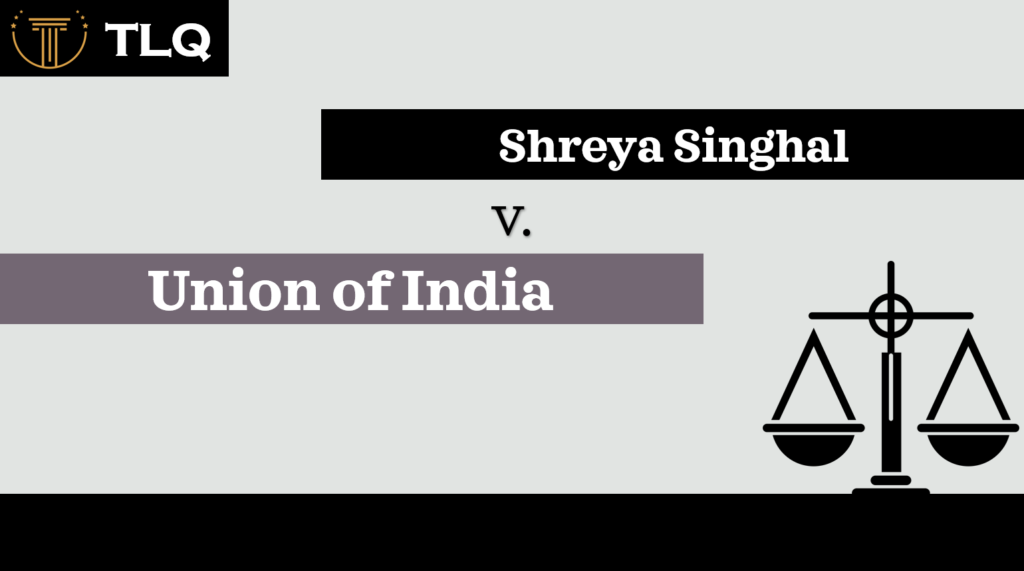Published On: 21st January, 2024
Authored By: Saudamini Naga Malladi
Symbiosis Law School, Hyderabad
The Indian Commerce Clause, according to the Supreme Court, is the main constitutional foundation for the federal government’s unique and comprehensive authority over Indian affairs. Justice Clarence Thomas has argued recently—and with drastic ramifications for contemporary doctrine—that the original meaning of the Clause does not support this authority, using recent scholarship to support his claims. This article challenges the central claim of this dispute by utilizing unresearched historical sources. It makes the case that the Indian Commerce Clause, which was drafted with no restrictions, was a little part of constitutional philosophy in the eighteenth century. Rather than relying solely on federal power over Indian matters, this article suggests alternative sources, notably the Washington Administration. The Administration adopted a comprehensive interpretation of the constitution that is similar to the modern field in order to assert federal control over the states. In terms of power over Native Americans, the Administration recognized Native autonomy outside of these bounds while maintaining ultimate U.S. sovereignty over tribes through law-of-nation interpretations. However, the later development of plenary power over tribes was based on these purportedly limited legal grounds. In terms of power over Native Americans, the Administration recognized Native autonomy outside of these bounds while maintaining ultimate U.S. sovereignty over tribes through law-of-nation interpretations. However, the later development of plenary power over tribes was based on these purportedly limited legal grounds. The Supreme Court has ruled on significant issues pertaining to Indian tribal sovereignty law four times since 2019. Maybe this is a late reaction to the request made by Justice Clarence Thomas to make a body of jurisprudence that has been beset by doctrinal uncertainty more understandable. The divided votes in each of the above four incidents could be attributed to this confusion: Three were determined on a vote of 3-2-4, and one by a margin of 5. In the October 2022 term, the Court has consented to hear four additional matters that have been merged. They examine whether the federal Indian Child Welfare Act of 1978 (ICWA) is constitutional. This act aims to supersede state authority, control the removal and placement of American Indian children away from their homes, and provide guidelines to state courts regarding the processes involved. Child advocates are deeply divided regarding the merits of the ICWA. All of the ongoing cases, however, are limited to constitutional matters. They bring up issues with the delegation of legislative authority, the Fifth Amendment’s equal protection and due process, and the federal government’s appropriation of state officials. Their central query, though, is whether Congress has the jurisdiction to interfere in child placement decisions at all under the enumerated powers—despite the fact that family law is “an area that has long been regarded as a virtually exclusive province of the States.” This research’s application to the Interstate and Foreign Commerce Clauses may have additional intriguing implications. If “commerce” in the Indian Commerce Clause implies “intercourse,” then it should also imply intercourse in the other two Commerce Clauses, according to the “presumption of intransience uniformity” 250. Furthermore, the Foreign Commerce Clause has the same structural elements that support a liberal interpretation of the Indian Commerce Clause. By enhancing the federal government’s authority, the Constitution aimed to maintain American geostrategic leadership in relation to Indian matters. Additionally, the framework created by the powers of commerce, war, and treaties, among others, demonstrates this geostrategic strengthening. In the same way that the Constitution should be interpreted widely to better accomplish its structural geopolitical goal in Indian politics, it should also be interpreted widely to accomplish that goal in international affairs. Furthermore, as Professor Balkin has shown, a comprehensive interpretation of the Foreign Commerce Clause offers a convincing analytical justification for the authority to control foreign affairs and immigration. Subsequent studies could examine the feasibility of interpreting the Foreign Commerce Clause broadly in terms of commerce and apply the findings to the Court’s foreign affairs doctrine. Whether the Interstate Commerce Clause falls under the same broad meaning of commerce is arguably the most intriguing subject. A thorough interpretation of the Interstate Commerce Clause’s Commerce translates nicely into the existing Commerce Clause doctrine.




